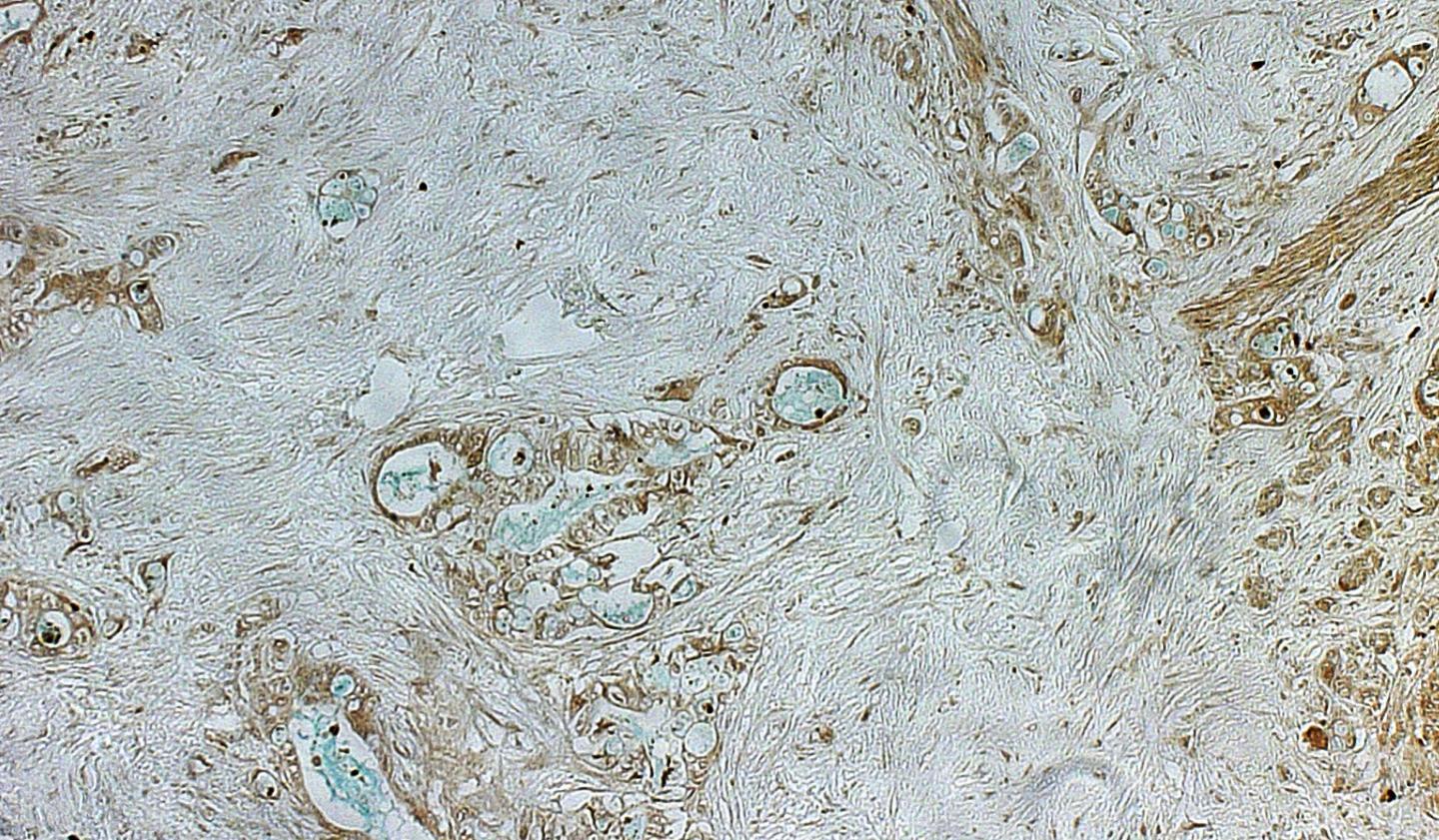
By studying a highly cancer-prone family, scientists have identified a rare, inherited gene mutation that dramatically raises the lifetime risk of pancreatic cancer. The discovery of this previously unknown mutation in the gene RABL3 could lead to routine testing of individuals with a strong family history of pancreatic cancer and early detection of the disease.
The study, published in the journal Nature Genetics, was performed in the laboratory of Wolfram Goessling, M.D., Ph.D., who is an HSCI Principal Faculty member and the Chief of Gastroenterology at Massachusetts General Hospital.
“Pancreatic cancer is a challenging disease with limited treatment options,” said first author Sahar Nissim, M.D., Ph.D., a cancer geneticist and gastroenterologist at Dana-Farber Cancer Institute and Brigham and Women’s Hospital. “Familial pancreatic cancer, in which an inherited genetic mutation is responsible for multiple cases in a single family, may give us precious insights that open new preventative and treatment options for pancreatic cancer.”
Finding the mutation
The research team worked with a family that included five relatives with pancreatic cancer and multiple family members with other cancers — a pattern suggesting an inherited mutation causing predisposition to developing cancer. By analyzing the family members’ DNA, the researchers identified a mutation in the gene RABL3.
To confirm that the RABL3 mutation causes cancer, the researchers used zebrafish as a test case. They introduced the mutation to large populations of zebrafish in order to assess the impact of the mutation on cancer risk. They found that similar to individuals in the patient family, zebrafish carrying the RABL3 mutation had dramatically higher rates of cancer.
The researchers found that specifically, the RABL3 mutation accelerates the movement of a known pancreatic cancer protein, KRAS, within the cell. This change facilitates the placement of KRAS in the cell membrane and triggers a series of events that promote cancerous growth.
Because KRAS activity is altered in a majority of pancreatic cancers, studying the impact of the RABL3 mutation on KRAS activity could provide important insights about pancreatic cancer development as well as a new strategy for targeted therapy.
“This work highlights the power of studying and understanding rare family syndromes: from just one family, we have uncovered broadly important insights into pancreatic cancer and how we may better prevent or treat it,” Nissim said.
Why it matters
While the RABL3 mutation is rare in the general population, testing for it — and potentially other mutations in the RABL3 gene — may reveal the genetic predisposition in other families with an unsolved hereditary cancer syndrome. Identifying a mutation in these families would help guide which relatives should consider pancreatic cancer screening.
“While testing for this specific genetic mutation is not available on current commercial genetic testing panels, we anticipate that the commercial tests will incorporate mutations in this gene in future panels,” Nissim said. “We anticipate that testing for this genetic mutation will be recommended in any individual with a strong family history of pancreatic cancer.”
Discover more
The original version of this story, entitled “Inherited pancreatic cancer risk mutation identified,” was published on the Dana-Farber Cancer Institute website on August 12, 2019.
Source article: Nissim, S. et al. (2019). Mutations in RABL3 alter KRAS prenylation and are associated with hereditary pancreatic cancer. Nature Genetics. https://doi.org/10.1038/s41588-019-0475-y
The research was supported by the National Institutes of Health, the National Pancreas Foundation, the Harvard Digestive Diseases Center, the Burroughs Wellcome Fund, the Pew Charitable Trusts, the Ken and Louise Goldberg Award, the Anna Fuller Fund, and the Claudia Adams Barr Program for Innovative Cancer Research.
